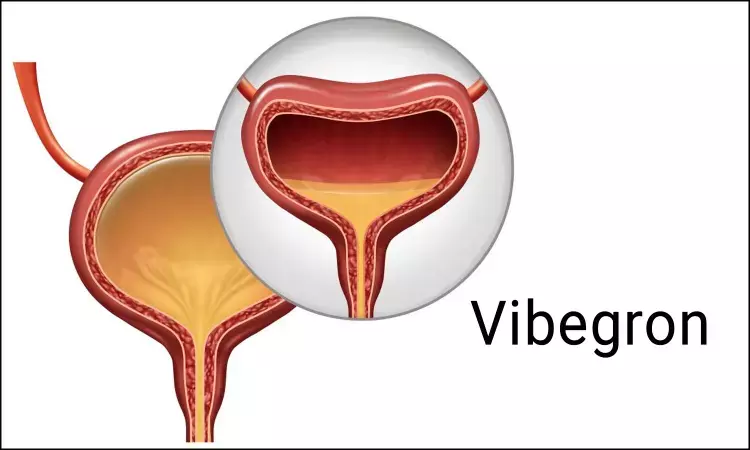- Home
- Medical news & Guidelines
- Anesthesiology
- Cardiology and CTVS
- Critical Care
- Dentistry
- Dermatology
- Diabetes and Endocrinology
- ENT
- Gastroenterology
- Medicine
- Nephrology
- Neurology
- Obstretics-Gynaecology
- Oncology
- Ophthalmology
- Orthopaedics
- Pediatrics-Neonatology
- Psychiatry
- Pulmonology
- Radiology
- Surgery
- Urology
- Laboratory Medicine
- Diet
- Nursing
- Paramedical
- Physiotherapy
- Health news
- Fact Check
- Bone Health Fact Check
- Brain Health Fact Check
- Cancer Related Fact Check
- Child Care Fact Check
- Dental and oral health fact check
- Diabetes and metabolic health fact check
- Diet and Nutrition Fact Check
- Eye and ENT Care Fact Check
- Fitness fact check
- Gut health fact check
- Heart health fact check
- Kidney health fact check
- Medical education fact check
- Men's health fact check
- Respiratory fact check
- Skin and hair care fact check
- Vaccine and Immunization fact check
- Women's health fact check
- AYUSH
- State News
- Andaman and Nicobar Islands
- Andhra Pradesh
- Arunachal Pradesh
- Assam
- Bihar
- Chandigarh
- Chattisgarh
- Dadra and Nagar Haveli
- Daman and Diu
- Delhi
- Goa
- Gujarat
- Haryana
- Himachal Pradesh
- Jammu & Kashmir
- Jharkhand
- Karnataka
- Kerala
- Ladakh
- Lakshadweep
- Madhya Pradesh
- Maharashtra
- Manipur
- Meghalaya
- Mizoram
- Nagaland
- Odisha
- Puducherry
- Punjab
- Rajasthan
- Sikkim
- Tamil Nadu
- Telangana
- Tripura
- Uttar Pradesh
- Uttrakhand
- West Bengal
- Medical Education
- Industry
FDA accepts NDA for vibegron for treating overactive bladder patients

US: The Food and Drug Administration (FDA) has accepted for review the New Drug Application (NDA) for vibegron (Urovant Sciences) for the treatment of patients with overactive bladder (OAB) with symptoms of urge urinary incontinence, urgency, and urinary frequency.
Vibegron is an oral, once-daily, small molecule beta-3 adrenergic agonist. The beta-3 adrenergic receptor is the most prevalent beta-adrenergic receptor subtype on the smooth muscle around the bladder. Bladder filling involves the relaxation of this muscle and the contraction of the urethral smooth muscle, while voiding involves contracting the bladder muscle and relaxation of the urethral muscle. Therefore, beta-3 stimulation can increase bladder capacity and reduce the symptoms of OAB.
Specifically, the program consists of the pivotal phase 3 EMPOWUR study in which 1518 patients were randomized to receive vibegron 75mg once daily, placebo, or tolterodine extended-release 4mg once daily for 12 weeks. Following are the findings of the study:
• Vibegron achieved a statistically significant reduction in daily urge urinary incontinence episodes and daily micturitions as early as 2 weeks compared with placebo.
• Vibegron also maintained statistically significant efficacy at all timepoints through the end of the study.
• Vibegron was statistically superior to placebo for key secondary endpoints including the number of urgency episodes, volume per micturition, and proportion of incontinent patients with a ≥75% reduction in urge incontinence episodes.
In a 40-week extension study, vibegron improved treatment benefits on key OAB symptoms. At week 52, 61% of vibegron-treated patients achieved at least a 75% reduction in daily urge urinary incontinence episodes, while 41% reported no urge urinary incontinence episodes. Vibegron demonstrated a favorable long-term safety and tolerability profile. The most common treatment-emergent adverse reactions were headache, nasopharyngitis, diarrhea, and nausea.
In addition to OAB, vibegron is being developed for two additional potential indications: the treatment of OAB in men with benign prostatic hyperplasia (BPH) and the treatment of pain associated with irritable bowel syndrome (IBS).
For further reading click on the following link,
MBBS
Dr K B AARTHI-has completed MBBS from SRM UNIVERSITY TAMIL NADU,Her interest is in the field of Pediatrics and Anaesthesia, also passionate in doing research and publishing articles.She joined Medical Dialogues in 2020 and publishes health news and medical updates. Email: editorial@medicaldialogues.in. Contact no. 011-43720751,9786713226
Dr Kamal Kant Kohli-MBBS, DTCD- a chest specialist with more than 30 years of practice and a flair for writing clinical articles, Dr Kamal Kant Kohli joined Medical Dialogues as a Chief Editor of Medical News. Besides writing articles, as an editor, he proofreads and verifies all the medical content published on Medical Dialogues including those coming from journals, studies,medical conferences,guidelines etc. Email: drkohli@medicaldialogues.in. Contact no. 011-43720751


